UN claims 'reprisal killings' by Taliban, says al-Qaeda 'sheltered', Daesh active
The United Nations special envoy for Afghanistan says there are “credible allegations” that the Taliban perpetrated reprisal killings despite the group’s promises of a general amnesty since their takeover of the war-ravaged county.
“We are concerned that despite the many statements granting general amnesties to ANDSF personnel and those who have worked as civil servants, there have been credible allegations of reprisal killings of ANDSF personnel and the detention of officials who worked for previous administrations,” Deborah Lyons told the Security Council on Thursday, referring to the collapsed Afghan National Defense and Security Forces.
Lyons said while the premises of the UN in Afghanistan have been respected for the most part, the world body is increasingly worried by growing harassment and intimidation of its national staff.
Lyons warned that the Taliban have already “visibly welcomed and sheltered” al-Qaeda members, and Daesh remains active “and could gain strength.”
The editor of two Afghan journalists said they were detained by the Taliban and beaten in police custody this week after covering a protest by women in Kabul.
Zaki Daryabi, founder and editor-in-chief of the Etilaat Roz newspaper, shared images on social media of two male reporters, one with large, red welts across his lower back and legs and the other with similar marks on his shoulder and arm.
Both men's faces were also bruised and cut in the pictures.
"Five colleagues were kept in a detention center for more than 4 hours, and during these four hours two of our colleagues were beaten and tortured brutally," Daryabi told Reuters.
Several journalists have complained of assault since the Taliban returned to power, and some women have said they were not allowed to carry on working in media jobs.
UN chief calls for 'dialogue' with Taliban
UN chief Antonio Guterres called on the world countries to continue dialogue with the Taliban.
"We must maintain a dialogue with the Taliban, where we affirm our principles directly -- a dialogue with a feeling of solidarity with the Afghan people," he said. "Our duty is to extend our solidarity to a people who suffer greatly, where millions and millions risk dying of hunger.”
Guterres said there were "no guarantees" about what might come out of talks but that discussions are a must "if we want Afghanistan not to be a center of terrorism, if we want women and girls to not lose all the rights acquired during the previous period, if we want different ethnic groups to be able to feel represented."
He said what the UN wishes is "an inclusive government" where all components of Afghan society are represented, and "this first preliminary government" announced a few days ago "does not give that impression.”
Guterres added that Afghanistan must be governed "in peace and stability, with the rights of the people respected."
The UN chief underlined that the world must avoid an "economic collapse" in Afghanistan.
The Taliban captured the capital Kabul and ousted the government of fugitive president Ashraf Ghani on August 15, after firming up their grip on almost the entire country through rapid advances that faced little or no resistance from government troops.
The group announced on Tuesday a caretaker government composed of mainly ethnic Pashtun men.
'Total breakdown'
UN envoy Lyons also urged the world to keep money flowing into Afghanistan despite concerns over the Taliban government, warning that the country could otherwise suffer a historic breakdown.
“A modus vivendi must be found -- and quickly -- that allows money to flow to Afghanistan to prevent a total breakdown of the economy and social order,” she said.
Without aid, the UN official warned, Afghanistan would face “a severe economic downturn that could throw many more millions into poverty and hunger, may generate a massive wave of refugees from Afghanistan and indeed set Afghanistan back for generations.”
"The economy must be allowed to breathe for a few more months, giving the Taliban a chance to demonstrate flexibility and a genuine will to do things differently this time, notably from a human rights, gender, and counter-terrorism perspective," she told the 15-member council.
The United States has frozen much of the Afghan central bank's $10 billion assets overseas, using it as a leverage to pressure the Taliban into meeting its demands.
The International Monetary Fund has also blocked the Taliban from accessing some $440 million in new emergency reserves.
The United States indicated Thursday that “we’ll work" with the Taliban if the group submitted to certain demands.
Jeffrey DeLaurentis, the deputy US ambassador to the UN, told the Security Council meeting that “any legitimacy and support will have to be earned.”
US National Security Council spokesperson Emily Horne praised the Taliban as “businesslike” and “cooperative” in facilitating the evacuation of Americans from Afghanistan.
"The Taliban have been cooperative in facilitating the departure of American citizens and lawful permanent residents on charter flights from HKIA," she said in a statement, referring to Kabul's Hamid Karzai International Airport.
"They have shown flexibility, and they have been businesslike and professional in our dealings with them in this effort."
The takeover of Afghanistan followed months of peace talks between the Taliban and the US without the participation of the Afghan government and the sudden withdrawal of American troops from the main Bagram airbase in the dead of the night.
‘Bloodbath in newsroom’: Bezos-owned Washington Post launches sweeping layoffs
Iran, US to hold nuclear talks in Muscat on Friday: FM
UN experts decry Israeli bill allowing execution of Palestinians
Epstein–Barak recording exposes multimillion-dollar fees paid to Tony Blair
UK Palestine Action activists acquitted of burglary in Elbit factory raid
Oman to broker fresh round of Iran-US talks on February 6: Reports
VIDEO | Iran unveils space technology milestones
Israel to shut water, electricity at UNRWA facilities in occupied territories


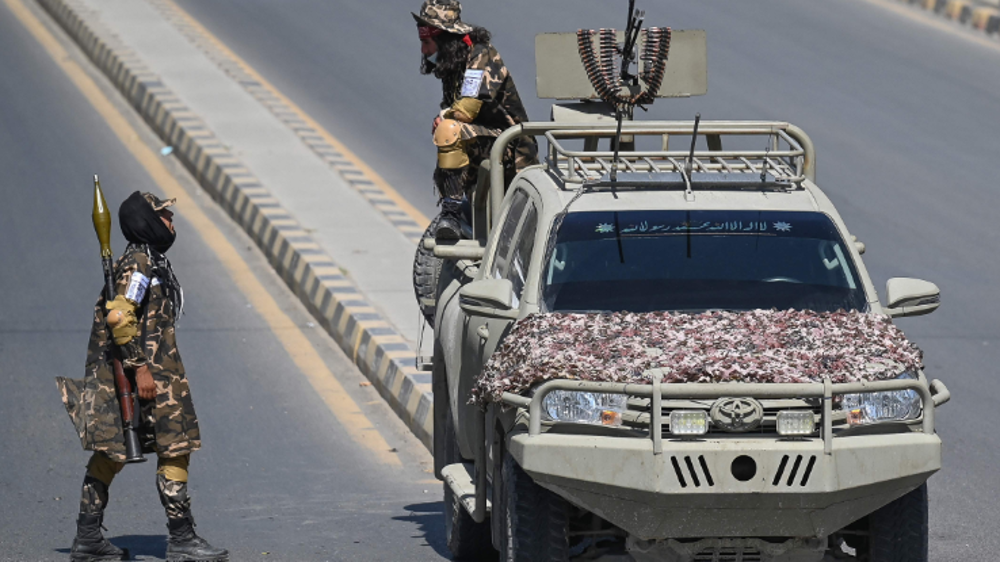
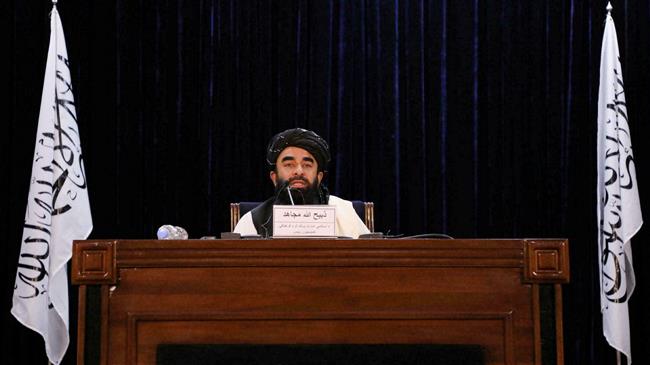
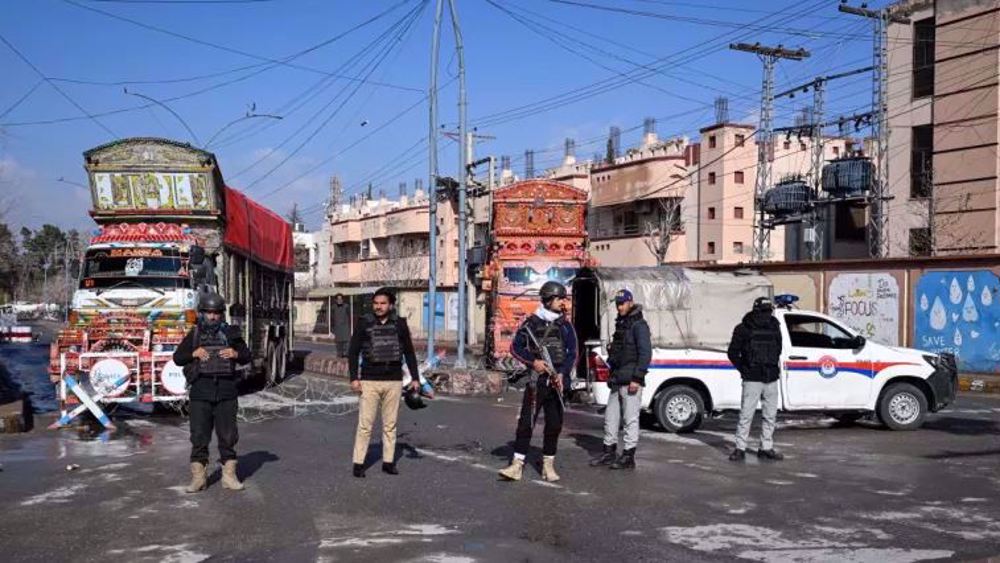
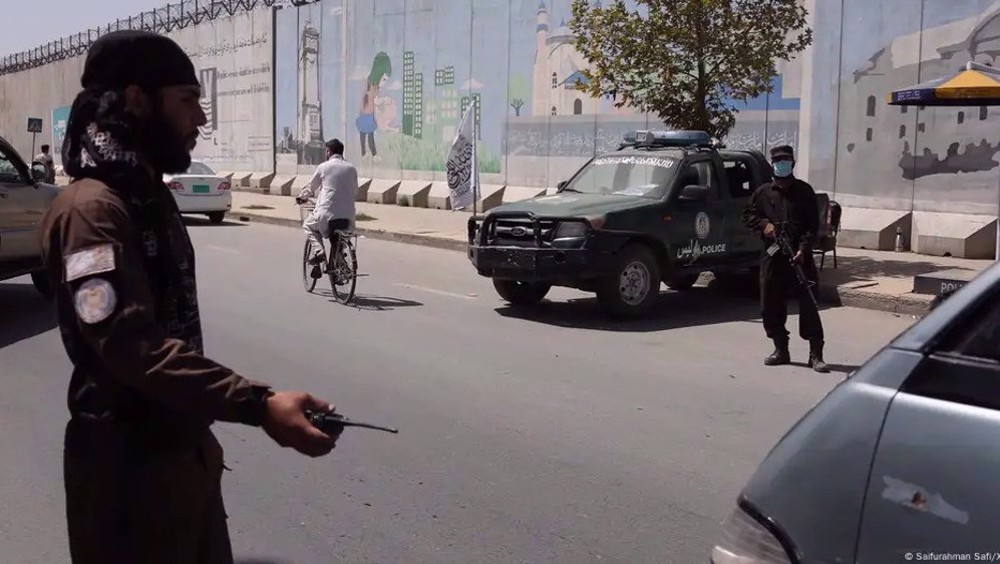
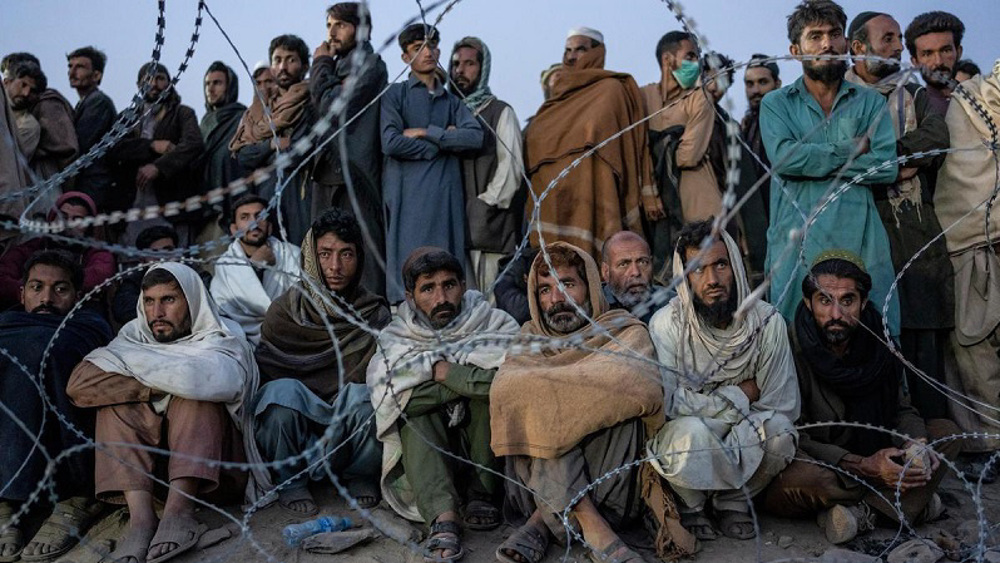




 This makes it easy to access the Press TV website
This makes it easy to access the Press TV website